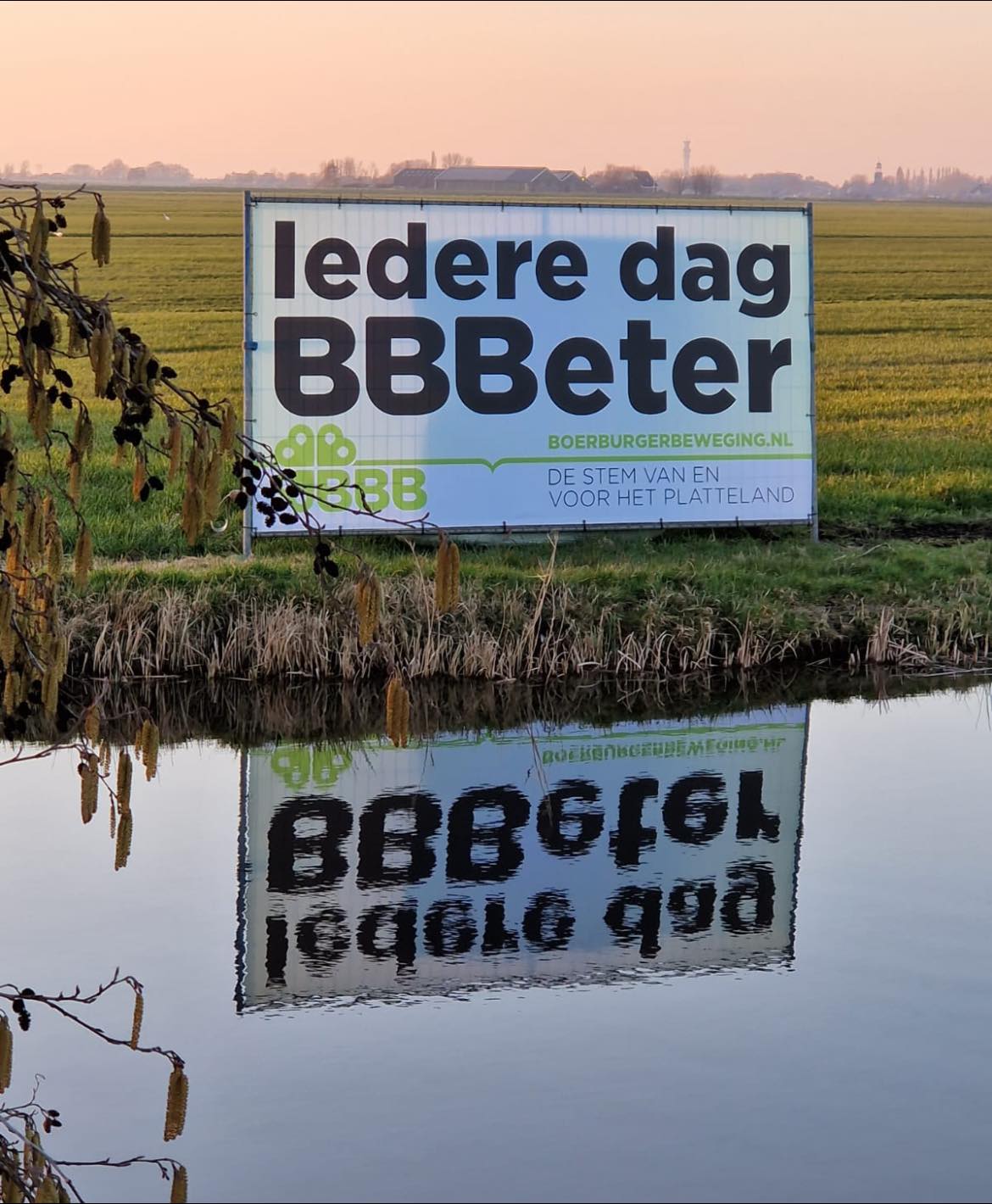
After last March’s regional elections in the Netherlands, the agrarian populist BoerBurgerBeweging (BBB) suddenly found itself the largest political force in all 12 of the country’s provinces. While in some provinces, coalition talks are still ongoing and plagued by disagreement, in others, the BBB has pushed its agenda through.
Propelled by the Dutch farmers’ years-long revolt in response to their government’s drive towards halving nitrogen emissions by 2030—a goal which entailed lowering livestock numbers and fertilizer use and even included mandatory buy-out schemes—the BBB, founded in 2019, ran on addressing their concerns.
Trust in the BBB now seems to be paying off. Apart from the party’s ability to block the controversial nitrogen emission legislation in the Dutch Senate, its leverage within regional governments, which are tasked with enacting state policy, has turned out to be considerable.
One such example is the province of Gelderland. Its new government—composed of BBB, the People’s Party for Freedom and Democracy (VVD), Christian Democratic Appeal (CDA), ChristenUnie, and the Reformed Political Party (SGP)—will not cooperate with the controversial forced buy-out of farmers, its coalition agreement states.
In addition, the coalition contests the government’s 2030 target date for the halving of emissions, having set its own at 2035.
Since about 60% of all peak emitters—those who emit large quantities of nitrogen—are located in Gelderland (it boasts 566 dairy farms and 558 pig farms), this has thrown a monkey wrench in the federal cabinet’s nitrogen reduction goals.
In its agreement, the coalition states that “all sectors,” including construction, industry, agriculture, and transport, must contribute to reducing nitrogen emissions. According to the coalition, this would be “an accelerator for innovation and sustainability in those sectors.” Drawing the card of pragmatism, the agreement went on to stress that the coalition wants to look “at what can be done rather than what cannot be done.”
The BBB has replicated Gelderland’s success in Limburg, Flevoland, Zeeland, and Zuid-Holland where (former agricultural journalist) Caroline van der Plas’ party has entered into coalitions with predominantly right-wing parties. In other provinces, it is still mired in negotiations.
In Utrecht, disagreement over the transition to green energy ended in the BBB being sidelined, as five remaining parties are now in talks to form a coalition. Appalled at being denied a place within it, BBB chairman Anton Verleun (BBB) told regional news outlet RTV Utrecht it was
a very tough learning experience. It is not always about substance, but more about the games which are played in politics. We are not good at such political games, nor do we want to be.
Verleun added that the BBB holds the same views on energy transition as coalition partners VVD and the CDA, while on that same topic, it disagreed with GroenLinks, also part of the incipient coalition. Should all parties reach an agreement on it, the BBB wonders if they can still be added to the coalition as its sixth party.
In Noord-Brabant, just as an agreement was about to be finalized with VVD, GroenLinks, and the Labour Party (PvdA), the BBB pulled the plug as it found the deadline for the retrofitting of barns (with a view to reducing nitrogen emissions) to be unachievable. It is now looking for a new coalition to be formed.
In Friesland, on June 19th, after two months of negotiations, the BBB, PvdA, CDA, and ChristenUnie reached an agreement for a new coalition. However, less than 10 hours later BBB Friesland had to read via a Whatsapp message that the PvdA had withdrawn.
According to PvdA member Jaap Stalenburg, the party’s reasoning was that “financially, it would have become too big an assault on nature and culture.”
Het was een korte nacht met veel overleg, maar uiteindelijk besloot fractie van @pvdafryslan zojuist niet in coalitie te gaan met @CUFryslan, @cdafryslan en @BoerBurgerB. Het zou financieel te grote aanslag op natuur en cultuur zijn geworden. Vanavond lichten we leden in. pic.twitter.com/qc9RwucfGZ
— Jaap Stalenburg (@JaapStalenburg) June 20, 2023
It is probable that the BBB’s staunch refusal to back the forced buy-outs and a halving of nitrogen emissions by 2030 constituted a red line for the PvdA.
This leaves the BBB with a dilemma. While it refuses to compromise on these issues—given these were key to its success, such a move would greatly anger its electorate—intransigence might ultimately cost it a seat at the table.
